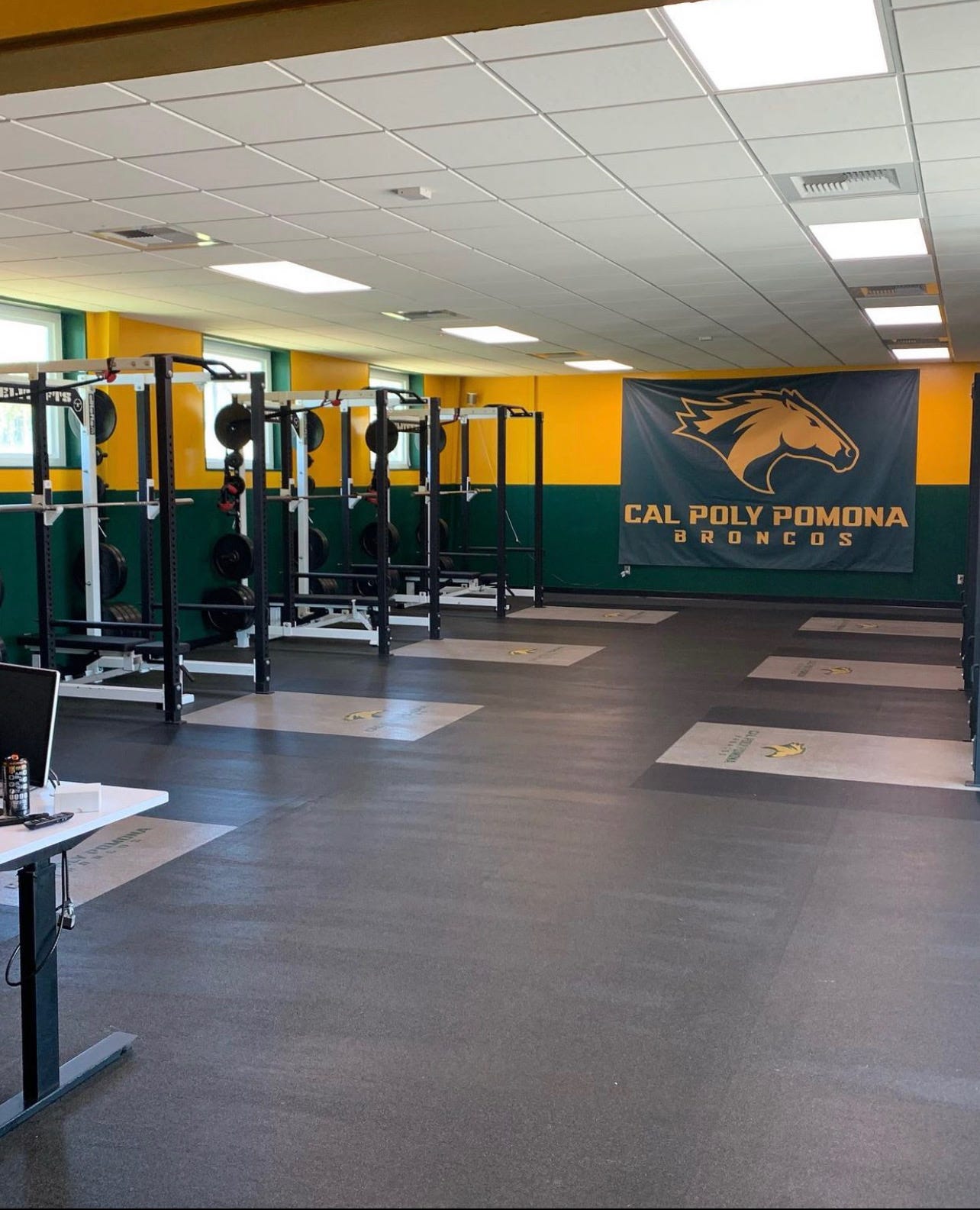More than just a number: Bronco Sports Performance Center helps student athletes
Christian Ulrich wrote this article for Cal Poly Pomona’s The Poly Post. It is available for republication or reference.
The CPP Bronco Sports Performance Center, now working with Counseling and Psychological Services and the Team Nutrition Educators program, focuses on keeping CPP’s athletes in tiptop shape. The center prides itself on providing the best information on health and nutrition to all of its student-athletes.
The center serves student-athletes in every sport from baseball to track and field all year round. Student-athletes can come in for weightlifting, advice from coaches, and mental health care.
Assistant Athletics Director for sports performance Ruem Malasarn reassured the center’s goal to improve athlete’s experience.
“The center is relatively new to our department,” said Malasarn. “It’s only four and a half years old, but in that time, it’s been a huge addition in the sense of getting our athletes strong on and off the field.”
Malasarn mentioned updating the center from the previous inception of nautilus machines to a full wellness center has made an enormous impact. Allowing various staff members to focus on each and every intricate part of sport’s performance has helped improve things in the win column for all of CPP sports.
Johnny Pappas, a catcher for the men’s baseball team, praised the sports performance staff for treating him and his teammates as people first and as athletes second. To Pappas, the relationship with them is vital to his team’s success on the field.
“It’s awesome to have your special needs addressed and, in such detail,” Pappas added. “To me, that really sets our program apart from others.”
For most athletes, health is a huge factor for success. The Sports Performance Center provides a variety of resources to help their athletes be as mentally and physically healthy as possible.
The center is run by Chase Sanders, the head strength and conditioning coach. He works alongside players by providing warmups and strength and mobility exercises. Regardless of a student athlete’s sport, position or where they are in training during the season, Sanders adjusts the training cycle based on the specific needs of the athlete.
Now with 8 staff members, the Sports Performance Center, located in building 43, room 142, highlight’s mental health as a key piece to one’s well-being and how it is just as important as physical health.
Malasarn asserts that as the Sports Performance Center began to take shape, the emphasis on mental health care grew just as equally, reducing the stigma of reaching out for help and providing the resources for those in need of it.
“Performance anxiety is big,” said Pappas. “It can be easy to get down on yourself, and I have seen people quit because of it. Our training staff has put a big spotlight on not being afraid to talk to someone about your mental health.”
To Christopher Bradford, head coach of cross country and track and field, maintaining a relationship with his athletes for the betterment of their mental health is paramount.
“You have to know your athletes,” said Bradford. “Once they walk into the performance center or counseling office, they need to find that same level of care and trust. They get to know everybody on a daily basis. Our athletes need to feel like they are not just the number on their jersey.”
Bradford spoke highly of how every single staff member shows a willingness to do whatever is needed for their students and for their desire to put students in a position to succeed every day. Bradford feels that Malasarn has made things easy for him and other coaches by bringing in people that care about the impact they make.
Whether it’s bringing in the Team Nutrition Educators program to help keep students health or by working with Counseling and Psychological Services, the Sports Performance Center on campus can provide a knowledgeable perspective for every challenge student athlete’s face today.
Featured image courtesy of Chase Saunders.




